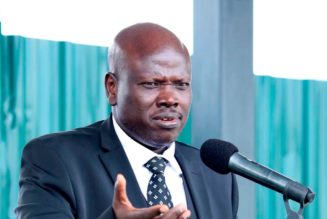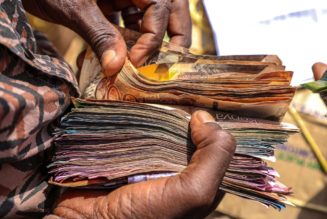Economy
State ends diesel subsidy, keeps pump prices unchanged
Tuesday February 14 2023
An attendant fuels a car at a Rubis petrol station in Nairobi. FILE PHOTO | NMG
The government Tuesday night discontinued subsidy on diesel but kept prices unchanged for the third month in a row, helping ease pressure on the exchequer amid billions of shillings in compensation arrears owed to oil marketers.
A breakdown of the pricing schedule gazetted by the Energy and Petroleum Regulatory Authority (Epra) shows the elimination of the subsidy even as the cost of super petrol remained unchanged at Sh177.30 per litre in Nairobi and diesel at Sh162.
Discontinuation of the subsidy comes in a monthly review where the cost of crude used in setting prices dropped to $90.90 per barrel, the lowest since March last year when it was $85.11.
Read: How delay in oil import deal will cost consumers in March
But the pricing schedule revealed a Sh10.66 subsidy per litre of super petrol, reversing an earlier decision made last year to eliminate the support on the commodity and progressively remove it on diesel and kerosene.
“The average landed cost of imported super petrol decreased by 0.12 percent from $660.65 per cubic metre in December to $659.87 per cubic metre in January 2022, diesel decreased by 4.76 percent from $818.45 per cubic metre to $779.49 per cubic metre,” Epra Director General Daniel Kiptoo says in the notice.
Removal of the subsidy on diesel looks set to ease pressure on the National Treasury amid billions of shillings in arrears owed to oil marketing firms dating back to last year.
Treasury has yet to pay oil marketers the billions for the subsidy scheme the previous administration started in April 2021.
Unchanged prices have, however, dashed hopes of a significant drop in the cost of living given the significance of transport costs in the country’s inflation basket.
Kenya’s economy relies on diesel for transport, powering of farm machinery and fuel for electricity generation. Manufacturers and service providers factor in pump prices in setting prices for the goods and services.
The inflation rate eased for the third consecutive month to 9.0 percent in January, from 9.1 percent posted in December, marginally easing the cost of living pressure on households.
President William Ruto’s administration dropped the subsidy on super petrol in September last year and opted to cross-subsidise diesel and kerosene.
Removal of the fuel subsidy had set the stage for a spike in the cost of living as inflation soared to a 65-month high of 9.6 percent in October.
The continued drop in crude prices globally has boosted the government’s plan to eliminate subsidies without pushing the costs of living higher.
American investment bank Goldman Sachs projects Brent to average $92 a barrel this year, less than their previous level of $98.
The bank attributes the projected low prices to the high interest rates that have weighed on economic growth and energy consumption, adding that investors are not overly concerned about a drastic drop in oil supply from Russia due to sanctions.
The European Union’s ban on refined petroleum products from Russia kicked in on February 5 as the 27-member EU bloc tightened the sanctions following the country’s invasion of Ukraine last year.









